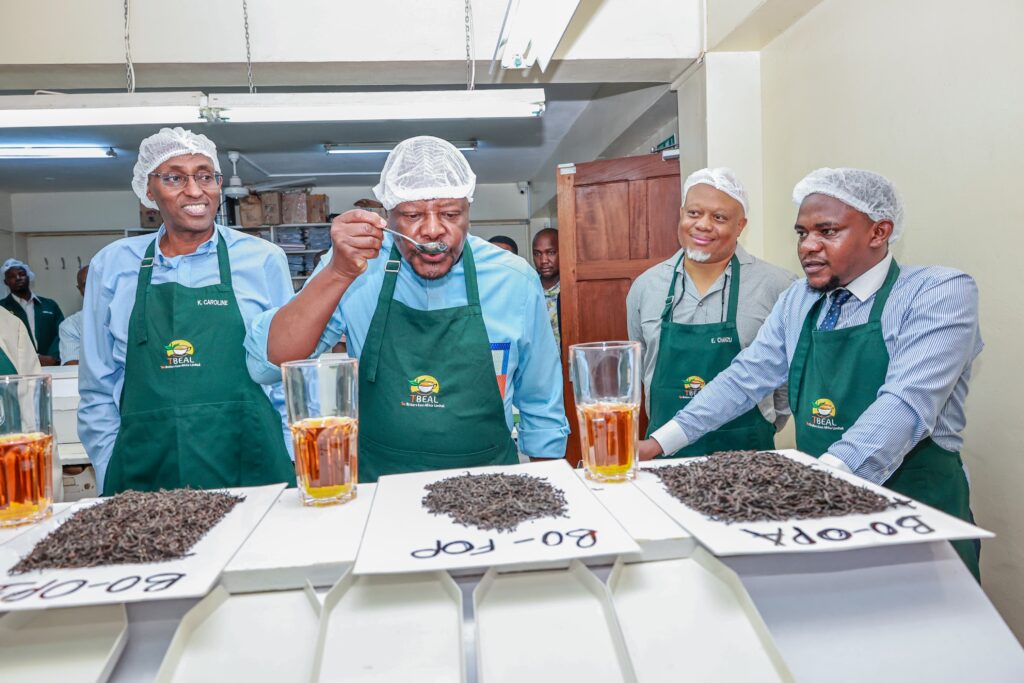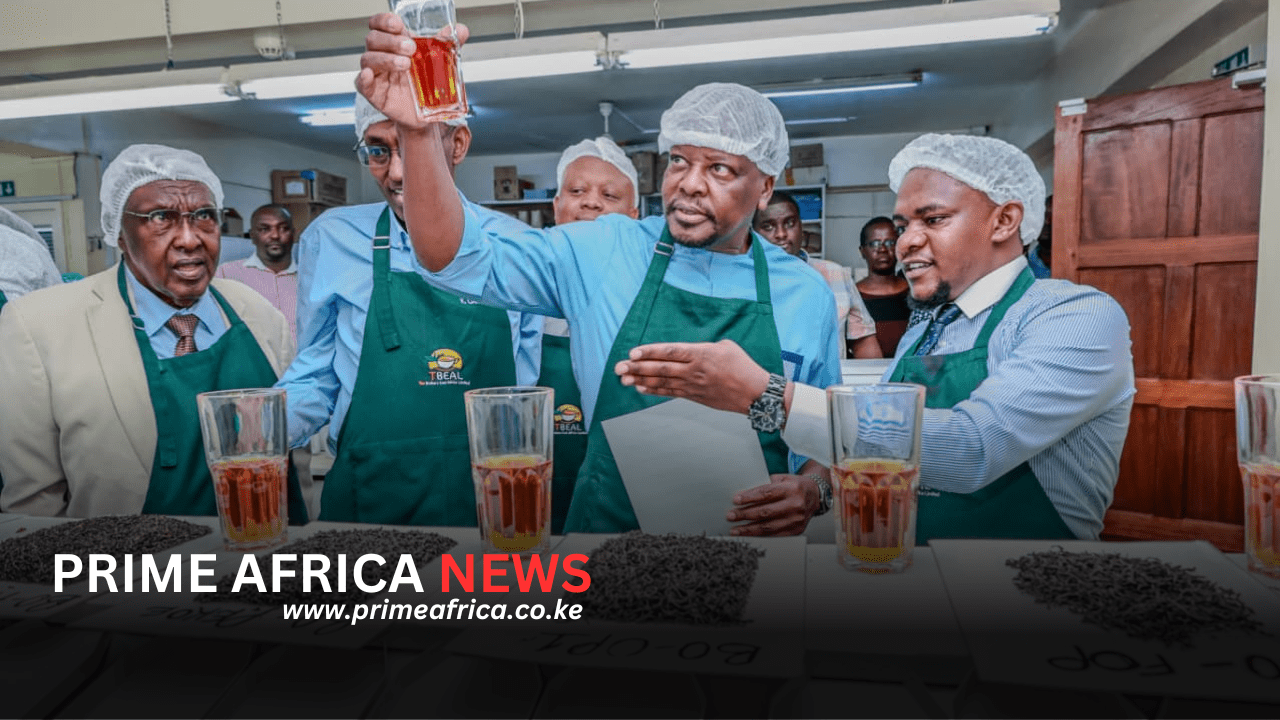Mombasa, Kenya – Cabinet Secretary for Agriculture, Hon. Mutahi Kagwe, has officially launched the Orthodox Tea Auction in Mombasa, a move hailed as a milestone for Kenya’s tea industry and a significant step forward for the country’s 650,000 tea farmers.
Speaking at the event, Kagwe highlighted that the sector had achieved its highest-ever earnings in 2024, raking in KSh 215 billion from both export and local sales. This marked a remarkable rise from KSh 180 billion in 2023 and KSh 138 billion in 2022.
“These figures confirm what we have always known: that Kenyan farmers are hardworking, resilient, and capable of producing teas that the world admires,” Kagwe said.

Despite this growth, the CS cautioned stakeholders against complacency, noting that the global tea market is undergoing significant shifts. “Our traditional mainstay now faces flat demand and depressed prices at the Mombasa Auction,” he said, pointing to a mismatch between production and consumption that has led to unsold stocks and lower earnings for farmers.
Kagwe underscored the potential of Orthodox and specialty teas, a lucrative niche segment growing at an average of 6 percent annually and currently dominated by Sri Lanka, India, and China.
Kenya’s Orthodox tea production stood at 7.51 million kilos in 2024, of which 5 million kilos were exported. This was a decline from 12.34 million kilos in 2023, largely due to trade challenges with the Iranian market. High-level discussions are underway to resolve the matter and unlock greater export potential.
Currently, 22 licensed manufacturers produce Orthodox teas in Kenya, with projections that the number will nearly double to 42 by 2027. Orthodox teas have fetched between USD 3.40 and USD 4.16 per kilo at auction, averaging USD 3.70 per kilo, compared to an average of USD 2.28 per kilo for bulk CTC teas.
At its launch, 91,798 kilos of Orthodox tea went under the hammer in Mombasa, expected to fetch between USD 3 and USD 10 per kilo. The auction is projected to deliver higher farmer earnings and raise Kenya’s standing in global specialty markets.

The Tea Board of Kenya (TBK) has licensed more than 15 factories to manufacture Orthodox teas, supported by the rollout of 13 new government-backed manufacturing lines. To safeguard quality, TBK has also established a Tea Quality Assurance Laboratory in Mombasa, providing real-time product testing, food-safety certification, and quality advisory services.
In a bid to modernize trading, the Mombasa Tea Auction is moving online to allow international buyers to participate in real time. “This digital transformation will enhance price discovery, reduce cartels, and firmly position Kenya as a modern, efficient tea-trading hub,” Kagwe affirmed.
The CS urged industry players to support the validation of Tea Licensing and Registration, Tea Levy Regulations, and further amendments to the Tea Act. “A robust regulatory framework will improve transparency, guarantee better returns for farmers, and ensure Kenya remains globally competitive,” he said.
The launch of the Orthodox Tea Auction is seen as both a strategic and symbolic step, anchoring Kenya’s tea sector in global specialty markets while reinforcing the resilience and innovation of its farmers.






